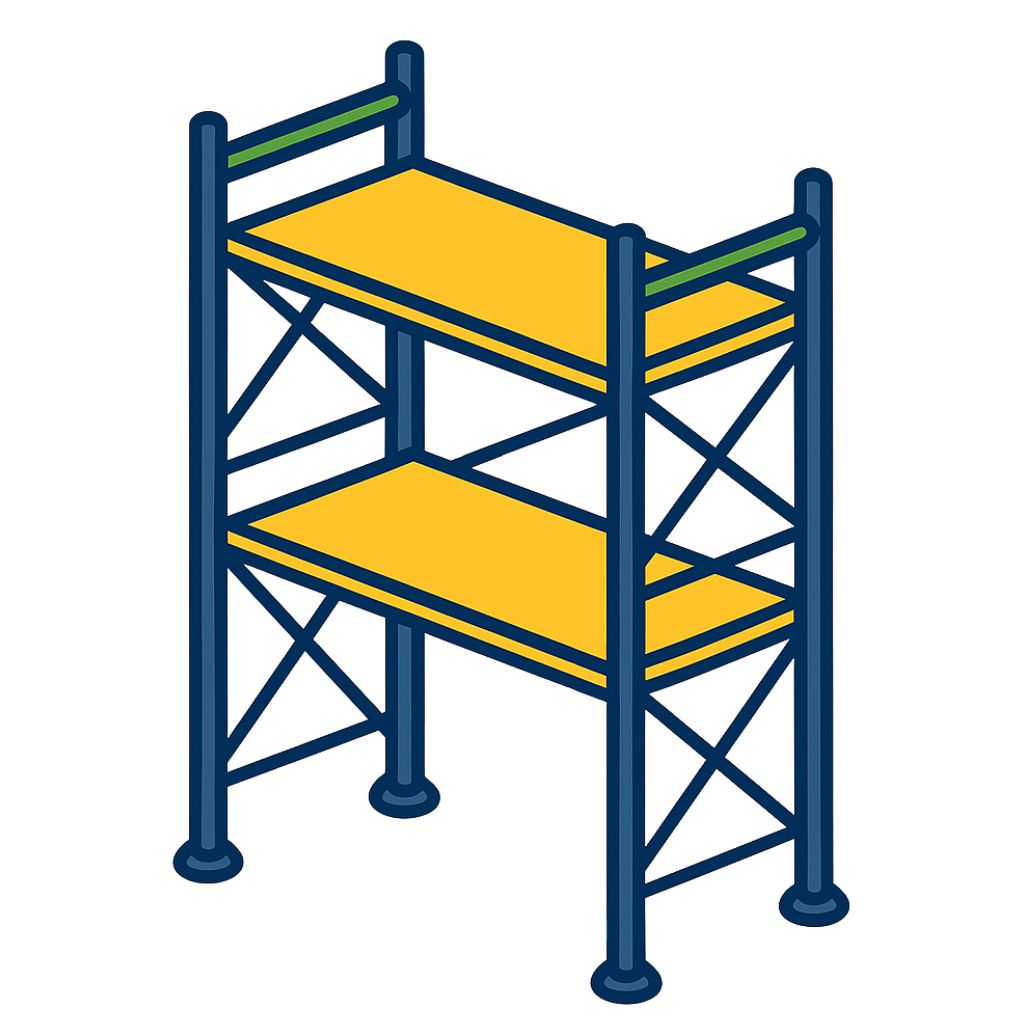Scaffolding

Too Many, Too Scattered, Too Poorly Tracked
On nuclear sites, scaffolding is everywhere — maintenance, new works, RP, logistics… Every day, dozens of structures are erected, modified, dismantled, or awaiting inspection.
And yet it remains extremely difficult to get a clear, real-time picture:
- What is currently erected?
- What requires inspection?
- What has been left standing for too long?
- How many components are still available in stock?
Common field issues
- No global overview of scaffolding by zone or contractor
- Gaps in inspection tracking (weekly, safety, RP): checks are done, but poorly documented
- Dismantling delays: structures left in place or not released on time
- Limited visibility on defects, pending acceptance, or end-of-life scaffolds
- Poorly managed stock (tubes, clamps, decks, nets): scattered, unlisted, unevenly allocated
How BROLZ helps
BROLZ enables rigorous, dynamic, and shared tracking of all scaffolding — whether erected, under assembly, pending inspection, or in stock.
Key features:
- Individual scaffold records: type, location, dimensions, contractor, erection/dismantling dates, status
- Tracking of regulatory and internal inspections with automatic alerts (RP, weekly, safety…)
- Field reporting of defects, non-conformities, or dismantling needs
- Mapping by zone: installed, pending inspection, awaiting dismantling
- Clear overview of total active scaffolds
- Tracking of stock and components (tubes, clamps, nets, decks…)
What changes with BROLZ
- Real-time, comprehensive view of all scaffolding
- Anticipate dismantling and free up zones faster
- Simplify audits: all data documented, inspected, and proven
- Better coordination between scaffolders, operations, RP, and safety teams
- Reduced downtime, forgotten structures, and uncertainty
Coming soon: A practical guide
We are preparing a comprehensive guide to operational scaffolding management in nuclear environments, including:
- Simple templates for erection / inspection / dismantling records
- Zone- and contractor-based management methods
- Field feedback on cross-team coordination
- Best practices to stop suffering from scaffolding management issues
The PDF will be available soon.
Subscribe to our newsletter to be notified.
Well-tracked scaffolding means fewer delays, fewer conflicts — and greater safety on site.
Erreur, essayez à nouveau
.avif)





